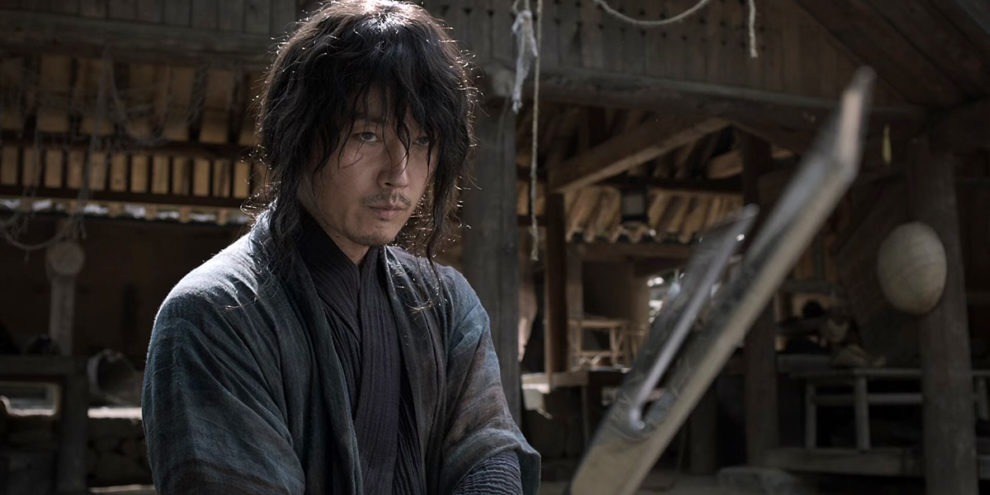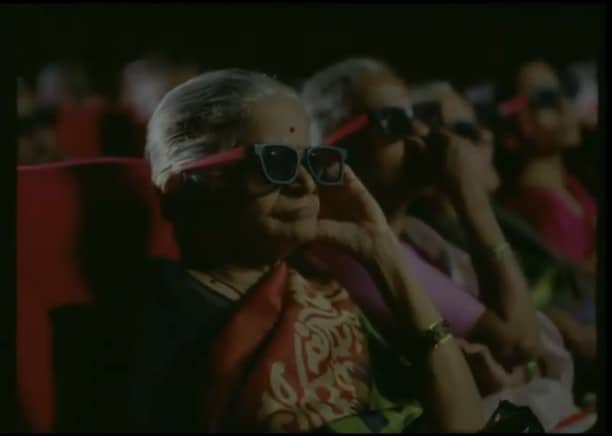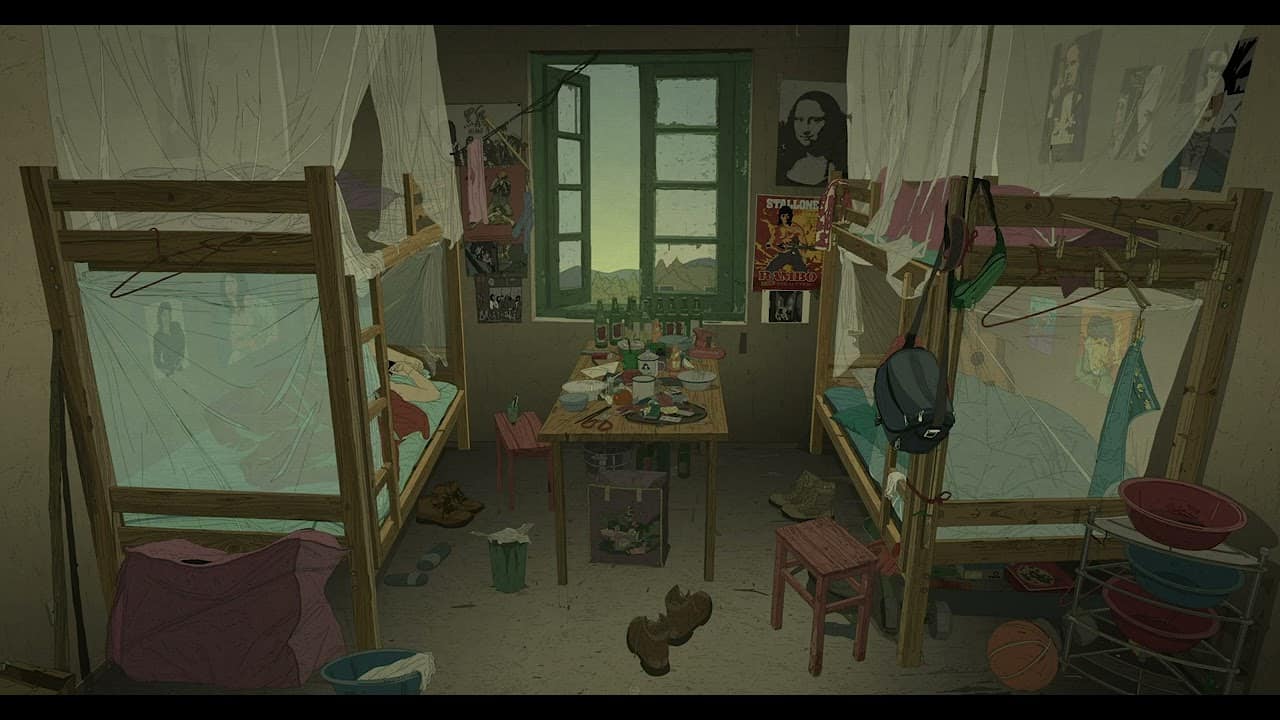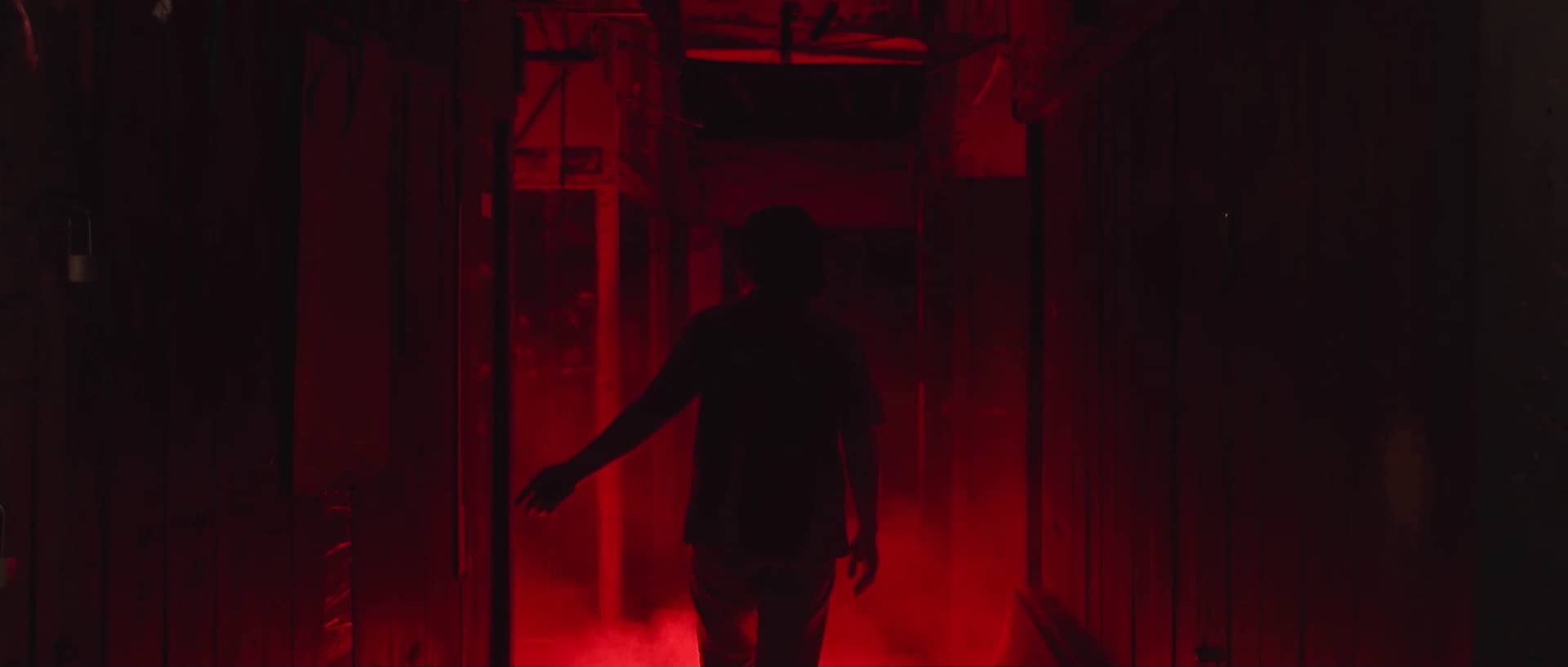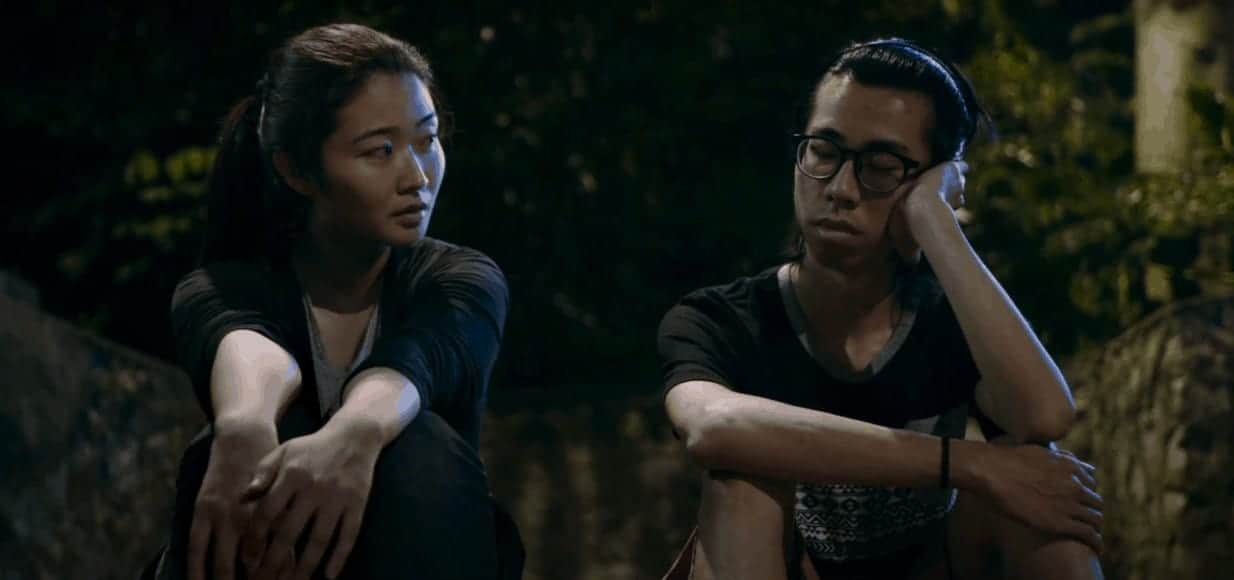The history of the transition from the Ming- to the Qing-dynasty stands for one of the most turbulent periods within China's past, a period of many territorial and political conflicts which would define the future for the nation as well as its culture. Its events have shaped the country and still shows its traces today as its duration, from 1618 to 1683, caused the death of around 25 million people. Considering the significance of the period, it sounds quite challenging for a director to approach this time as the background for his or her project, but then South Korean filmmaker Choi Jae-hoon does not seem to shy away from a task such as this. In his feature debut “The Swordsman” he tells the story of the fall of the Gwanghaegun, the fifteenth king of the Joseon dynasty, and its repercussions. The feature, which premiered in September 2020 in the director's home country, was invited to many international film festivals, such as Glasgow Film Festival and Hawaii International Film Festival, and became quite a success, despite the COVID-pandemic.
The Swordsman is screening on New York Asian Film Festival

At the center of the story we have Tae-yul (Jang Hyuk), former swordsman for the Gwanghaegun, who, after he has failed to protect his king, lives a reclusive life with his daughter Tae-ok (Kim Hyun-soo) in the mountains of Joseon. While the conflict in the country becomes increasingly violent and enables the rise of slave traders and human traffickers, they live peacefully, even though the former swordsman's sight becomes more and more blurry, eventually making a trip to the nearby city necessary. However, the needed cure is quite expensive and is normally only available to those of noble blood, so that Tae-ok contemplates being adopted by one of the rich Chinese merchants, against the will of Tae-yul.

Her stay with the rich family is short-lived as she is kidnapped by a group of thugs, employed by Gurutai (Joe Taslim), an influential and powerful slave trader, who aims to destroy the remaining resistance of those in favor of the Ming regime. As Tae-yul hears about what has happened, he decides to pick up his sword one more time and embarks on a journey of revenge in order to prevent Gurutai and his men from further harming his daughter. However, time is not on his side and as his sight becomes worse, he knows he has to hurry before it is too late.
Even though “The Swordsman” is supposed to be the feature debut for its director, its narration and overall aesthetics are very polished and professional. Even though the historic background of the feature is quite complicated, evident in aspects such as the sheer number of characters, the focus on the confrontation of Tae-yul and Gurutai, and respectively the former's relationship to his daughter, defines a very solid foundation for the story. Within this constellation, Choi Jae-hoon, who also write the script, manages to tackle several interesting aspects, such as the sense of shame and defeat in a character such as Tae-yul. Additionally, the concept of losing sight makes for a fitting metaphor for a time in which focus, orientation and security could be suspended from one moment to the other.
Apart from these points, “The Swordsman” features many great performances, with Joe Taslim as the main villain and Jang Hyuk as Tae-yul being the most notable. As the confrontation between these two men becomes inevitable, Son Won-ho's cinematography, among other features, highlights the growing tension. However, it is the action choreography where “The Swordsman” truly shines, making each fight a visual feast of speed and elegance, reminiscent of similar confrontations in, for example, the “Rurouni Kenshin” saga.
In the end, “The Swordsman” is a very entertaining and captivating period/martial arts feature. Apart from the impressive fight choreographies, its ensemble and the depiction of one of the most difficult phases in Asian history make Choi Jae-hoon's feature very impressive, thus recommending its director for other projects within the genre.


